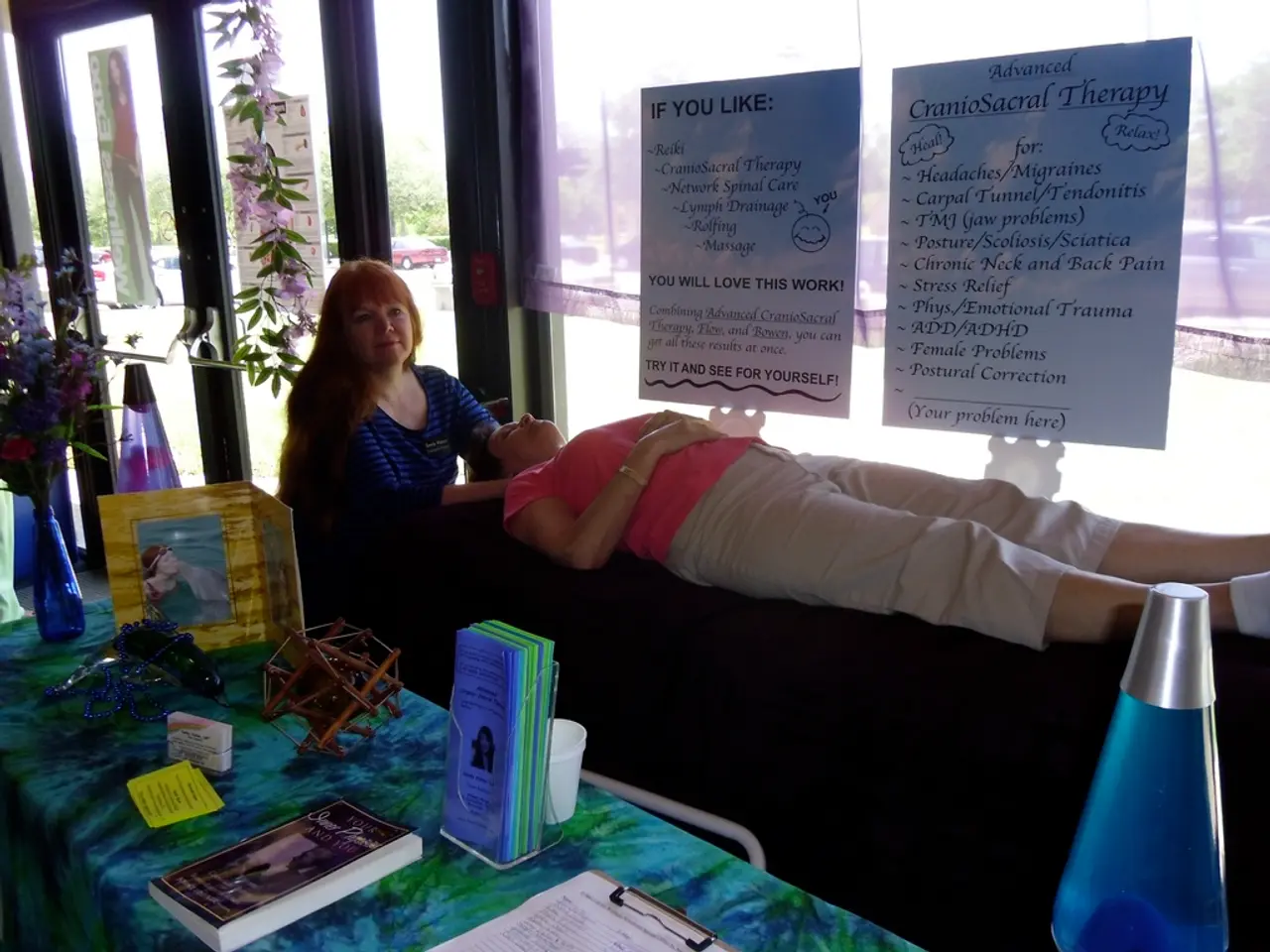COVID-19 pandemic's impact on psoriasis outbreaks?
The COVID-19 pandemic has brought about a host of challenges, and for those living with psoriasis, these challenges can exacerbate symptoms. A recent international survey revealed that some individuals with psoriasis had not taken their systemic treatments as prescribed during the pandemic, expressing concerns about the potential impact on their risk of developing COVID-19.
Psoriasis, a chronic inflammatory condition affecting the skin, is known to have a close, bidirectional relationship with stress. Stress triggers the immune system and releases substances like Substance P, which increase inflammation and promote psoriasis flares or the initial onset in predisposed individuals. The pandemic has introduced chronic stressors such as fear, social isolation, and disruption of routines, which are likely to exacerbate symptoms in people living with psoriasis.
To manage stress during the COVID-19 pandemic and potentially reduce psoriasis flares, people with psoriasis can take several steps. Engaging in stress reduction techniques such as mindfulness meditation, breathing exercises, yoga, or progressive muscle relaxation can lower psychological stress and its inflammatory effects. Maintaining regular medical care is also essential, whether in-person or via telemedicine. Supporting mental health is crucial, and seeking counseling, support groups, or therapy can help address pandemic-related anxiety, depression, and stress.
Adopting healthy lifestyle habits, including consistent sleep schedules, balanced nutrition, and regular physical activity, can improve both physical and mental well-being. Limiting exposure to pandemic-related stressors, such as reducing excessive news consumption or practicing social connection within safety guidelines, can avoid heightened stress responses.
People should let their doctor know if they have felt frequently stressed, worried, angry, sad, or disinterested in things they usually care about, as these may be signs of anxiety or depression. Their doctor may prescribe antidepressants or refer them to a mental health specialist for support. However, many clinics and other medical centers have restricted in-person appointments during the pandemic, making it harder for some people to get treatment for psoriasis, anxiety, depression, or other health conditions.
In a study of American adults with psoriasis, people who took biologics expressed more concern than others that their treatment might raise their risk of developing COVID-19. However, getting treatment for psoriasis can help reduce symptoms and improve quality of life. The National Psoriasis Foundation (NPF) COVID-19 Task Force recommends that in most cases, people should continue taking biologic or oral treatments that their doctor has prescribed.
The NPF Covid Task Force also encourages people with psoriasis to take any of the three SARS-CoV-2 vaccines available in the United States. Despite some reports of psoriasis flare-ups after vaccinations, research indicates that people with psoriasis who were on biologics had a lower risk of hospitalization if they potentially had COVID-19.
It's important to note that people with psoriasis have an increased risk of depression. Strategies to manage stress during the pandemic, such as taking breaks from news about the pandemic, making time for hobbies and relaxing activities, connecting with others, getting enough sleep, eating a nutritious diet, avoiding misusing alcohol or using tobacco or other substances, and getting regular exercise, can help reduce stress, anxiety, and depression.
In conclusion, managing stress during the COVID-19 pandemic is crucial for people with psoriasis. By integrating stress management strategies, people can better control their condition amid the ongoing challenges of the pandemic.
- Some individuals with psoriasis, a skin condition that has a close relationship with stress, had not taken their systemic treatments as prescribed during the COVID-19 pandemic, expressing concerns about their potential risk of developing COVID-19.
- The pandemic has not only introduced chronic stressors like fear, social isolation, and disruption of routines, but it has also increased stress levels in those who already have medical conditions like psoriasis.
- Adopting healthy lifestyle habits, such as regular physical activity, balanced nutrition, and consistent sleep schedules, can improve both physical and mental well-being, but reduce exposure to pandemic-related stressors can also help manage stress.
- People who have felt stressed, worried, anxious, or depressed during the pandemic should let their doctor know, as these feelings may be signs of anxiety or depression that require treatment, either through medication or mental health support.
- Naive individuals may hesitate to take treatments for psoriasis, fearing it could increase their risk of developing COVID-19, but according to the National Psoriasis Foundation (NPF) COVID-19 Task Force, getting treatment for psoriasis is essential for reducing symptoms and improving quality of life.
- The NPF Covid Task Force recommends that people with psoriasis take any of the three SARS-CoV-2 vaccines available in the United States and continue taking prescribed biologic or oral treatments, as people with psoriasis who were on biologics had a lower risk of hospitalization if they potentially had COVID-19.




